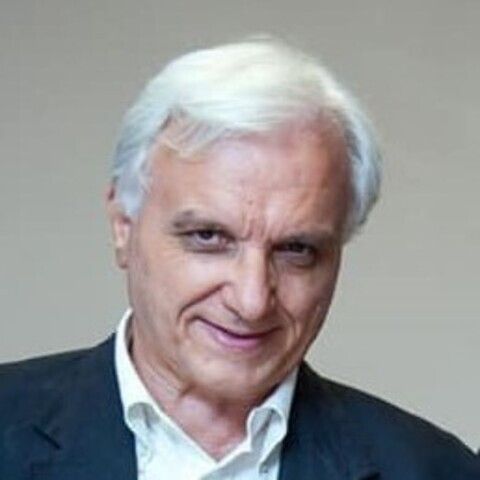There were a number of pleasures in this production of Lehár’s The Merry Widow: the light and frothy score was well conducted by Alfred Eschwé, all the characters were well sung and played, the scenes were colourful and glaring, and choreographies were brilliant. But, as operetta is nothing but easy-to-go entertainment and this one is the most popular of the genre, how is it that this production took a whole act to warm up the audience?
Vocally, there was nothing to complain about. The protagonist romantic couple, interpreted by soprano Maria Pia Piscitelli as Hannah Glawari, the widow of the title, and baritone Marcus Werba as Count Danilo Danilovitch, were at ease in their roles, even when overacting as movie stars of the 1930’s, according to the direction of Federico Tiezzi, who staged the plot in that period.
With the rest of the cast, Piscitelli and Werba delivered the lines with the tempi and excitement of a “comédie en vaudeville”. They commanded the whole performance both in the dialogues and the singing: their duet in the finale of Act I was amiable. Piscitelli rendered with her beautiful soprano and fine self-irony the rich heiress, and sung her Act II aria "Vilja” with lyrical expression and rich musicality.
Werba maintained a good balance between the two sides of Count Danilo’s personality. He was flimsy without being arrogant, romantic not being floppy; he sang with a bright voice, and his rich baritone was delightful.
Bass Filippo Morace was Baron Mirko Zeta, the top supporting character. Even though he has little singing, Morace proved effective, with lively acting allied to very good diction and clarity of voice.
He had an excellent, comic complement in Peppe Barra, a Neapolitan actor and folk singer who starred in the role of Njegus, the comic secretary of the Pontevedrian Embassy. Barra, who represents an important part of the recent history of traditional theatre and music in Naples, characterised his role with typical local comicality, and each of his puns was welcomed with (somewhat exaggerated) laughter by the audience.
There is also a secondary pair of lovers in the plot, and they proved just as well good actors as well as vocally reliable. Soprano Valeria Esposito was the flirtatious Baron’s wife, Valencienne. Tenor Andrea Giovannini brought his liveliness and admirable tenor voice to the role of her lover, Camille de Rossillon. At the end of Act II they excellently sang the duet, “Love is in my Heart”. Esposito was brilliant when she acted and also showed a good singing flair. With her clear soprano, she was an appealing personality, showing some impressive dance moves with the grisettes in Act 3.
Nonetheless, in some passages the singers did not seem to project sufficiently: as a matter of fact, the one disappointment of the evening was audibility. The San Carlo hall is legendary for its acoustics, but in this production it didn’t help and the audience had to adjust their standards and expectations.
Franz Lehár’s fizzing and charming music, including the celebrated “Merry Widow Waltz” was somewhat handicapped by this. The singers had to struggle to cut through the orchestral textures, and had a difficult time making themselves heard, not to speak of Barra, who needed a microphone in his only sung piece.
This is probably due to an imbalance between Lehár’s orchestral scoring and middle-voice singing rather than to shortcomings of performers or the conductor. Apart from this, under Eschwé’s baton, the orchestra sounded smart and amusing. The dance company of the house was also utilized well, and some of the choreographic ideas, such as the Balkan dances, were real treats.
Other characters deserve mention: Domenico Colaianni as Viscount Cascada and Enzo Peroni as Raoul de Saint Briosche, lent their great experience and talent to their roles, and the San Carlo chorus members sang with strength and refinement.


